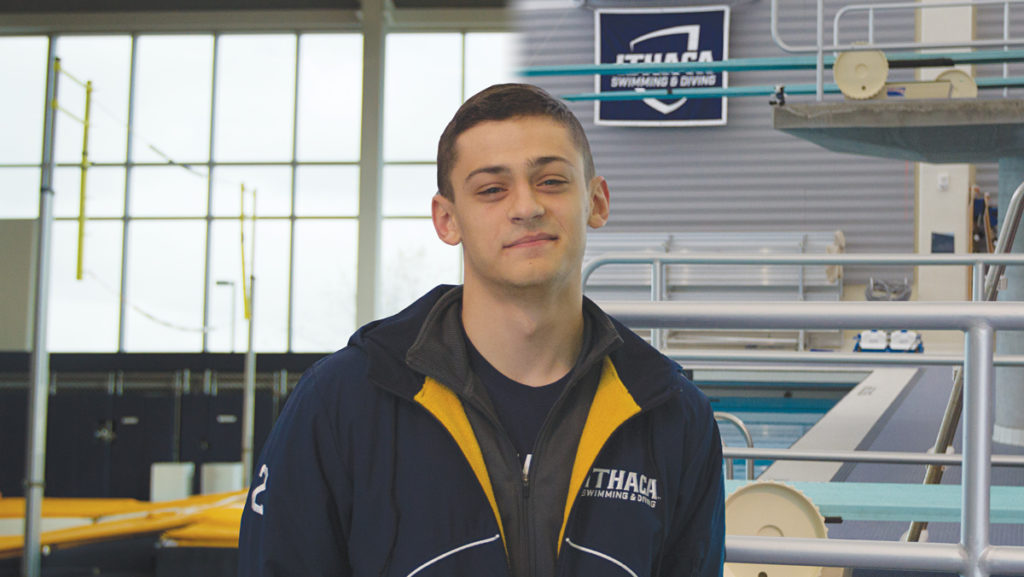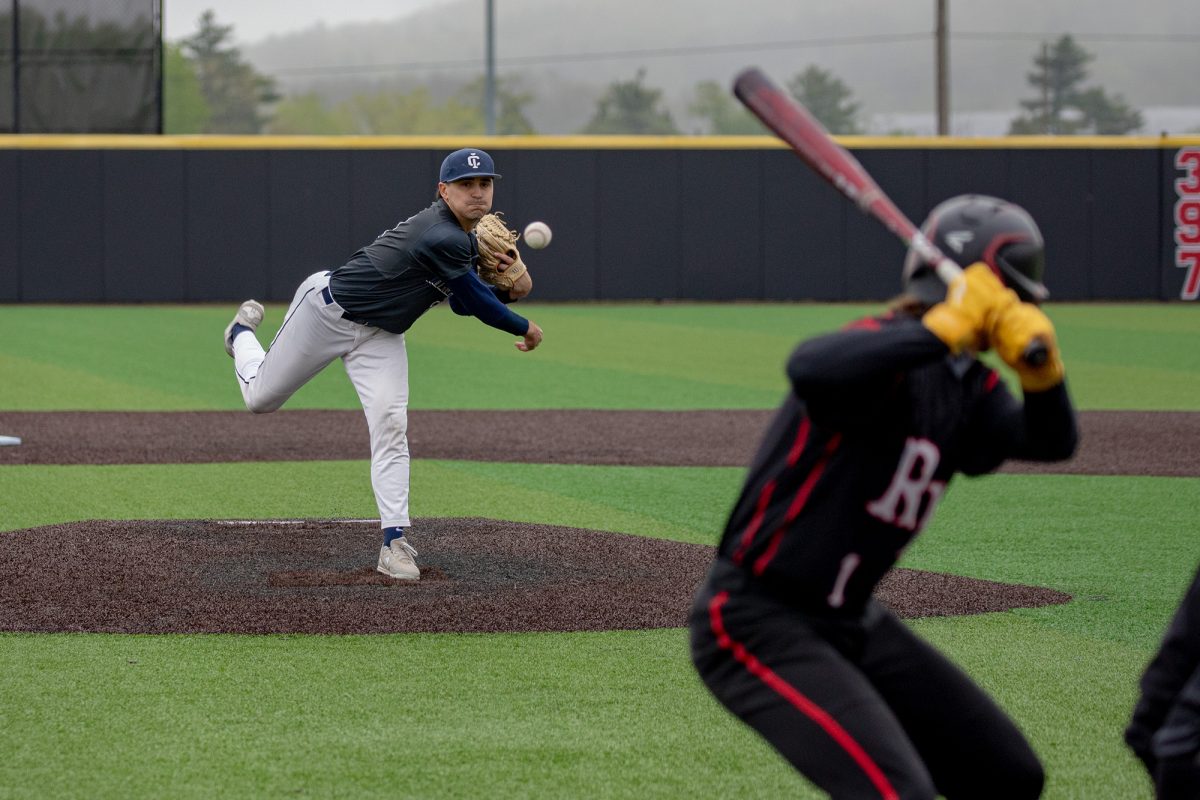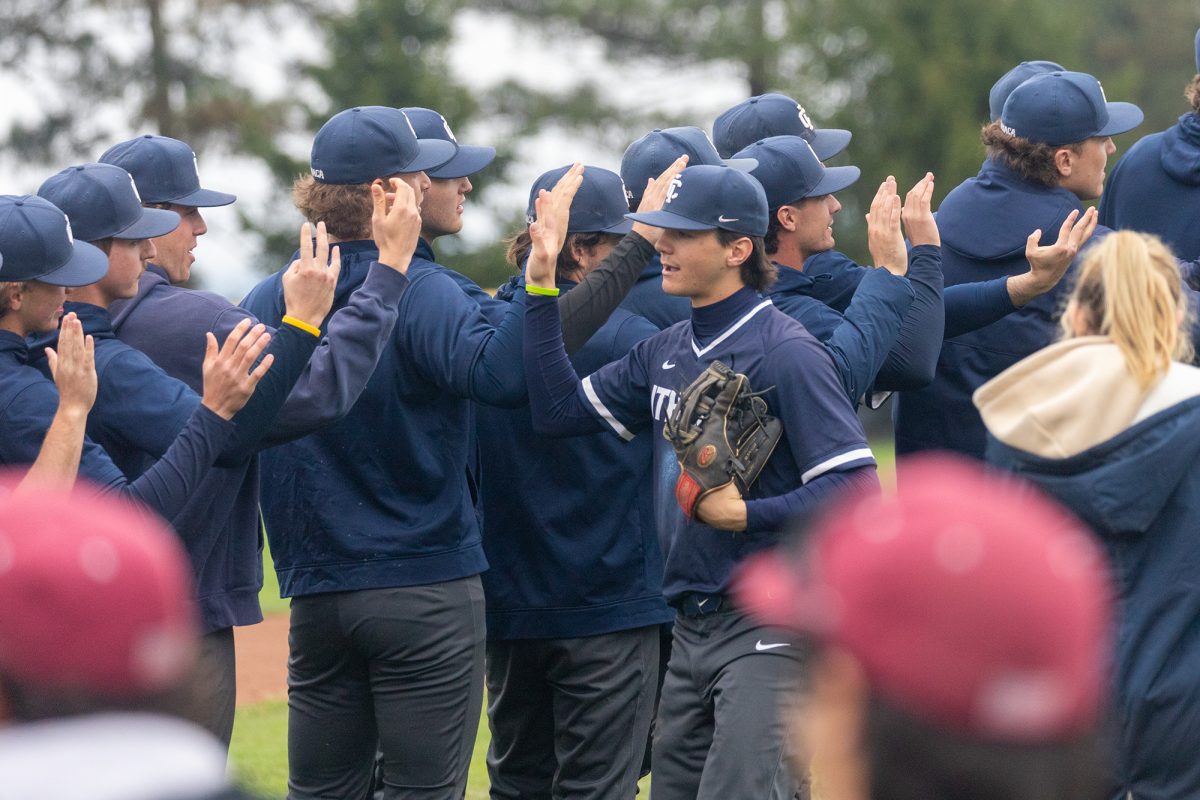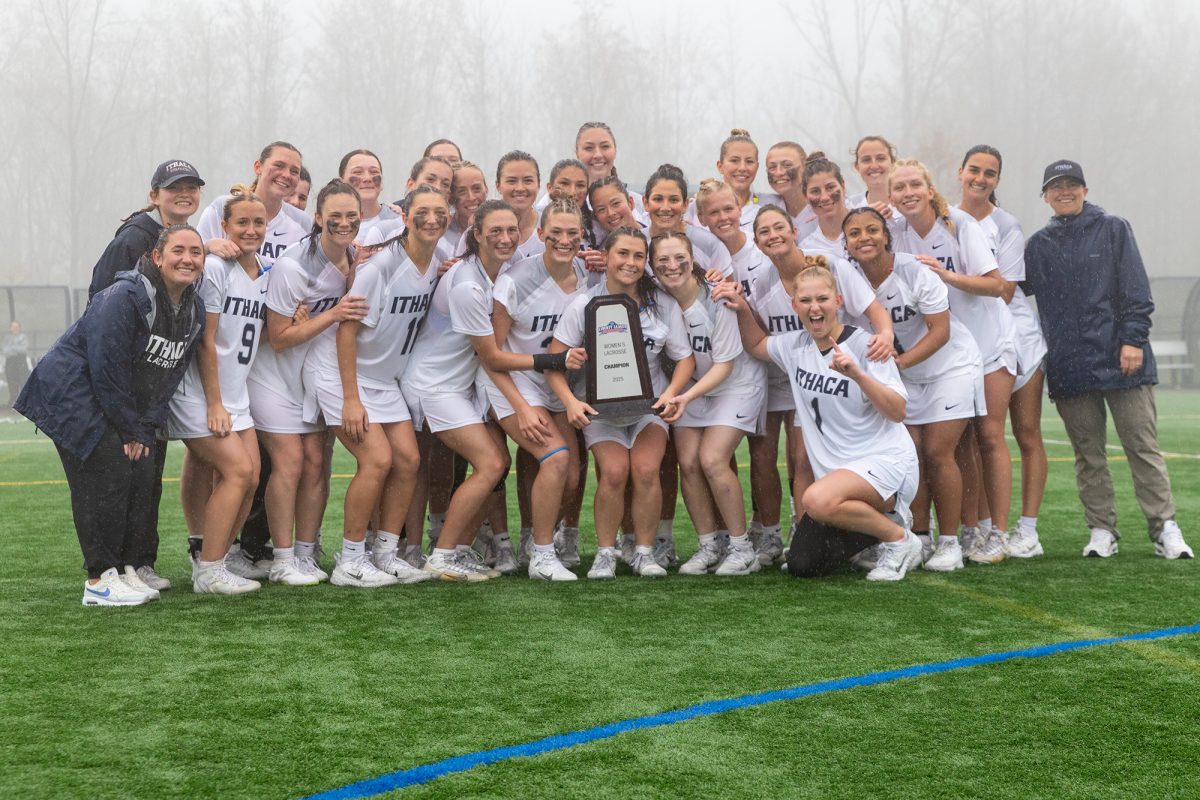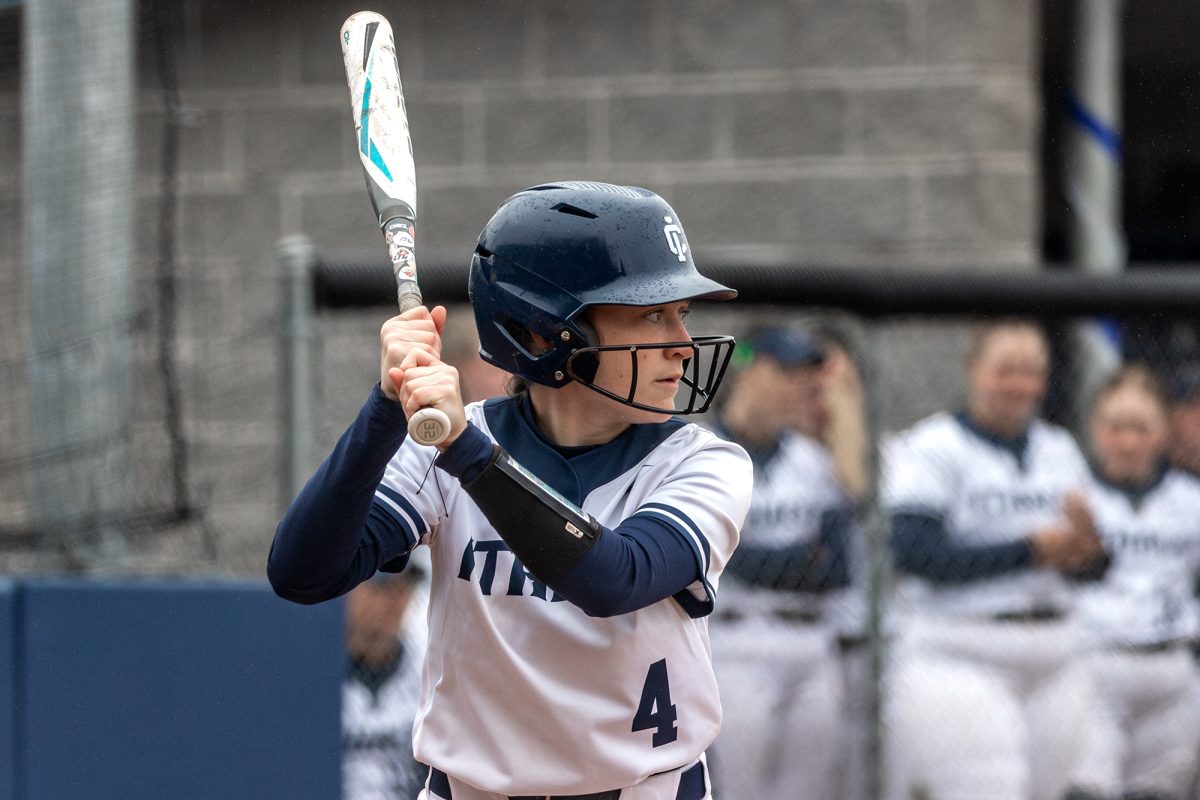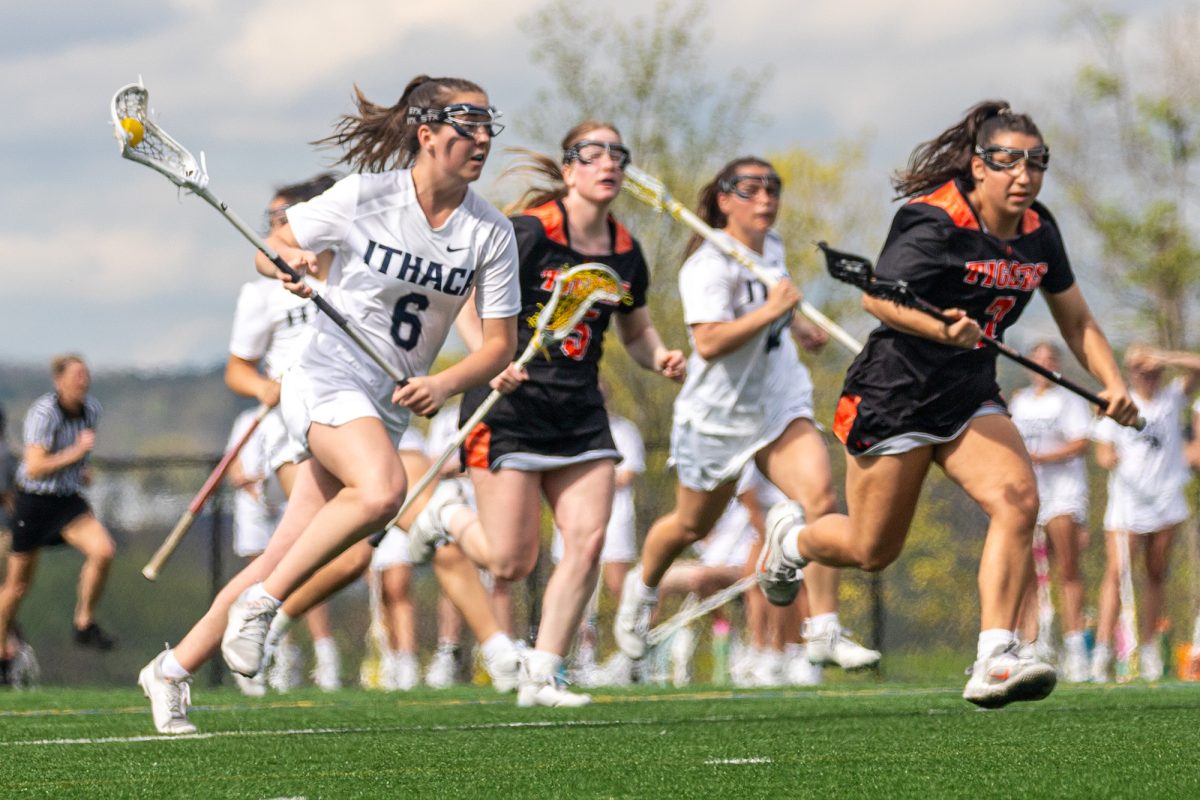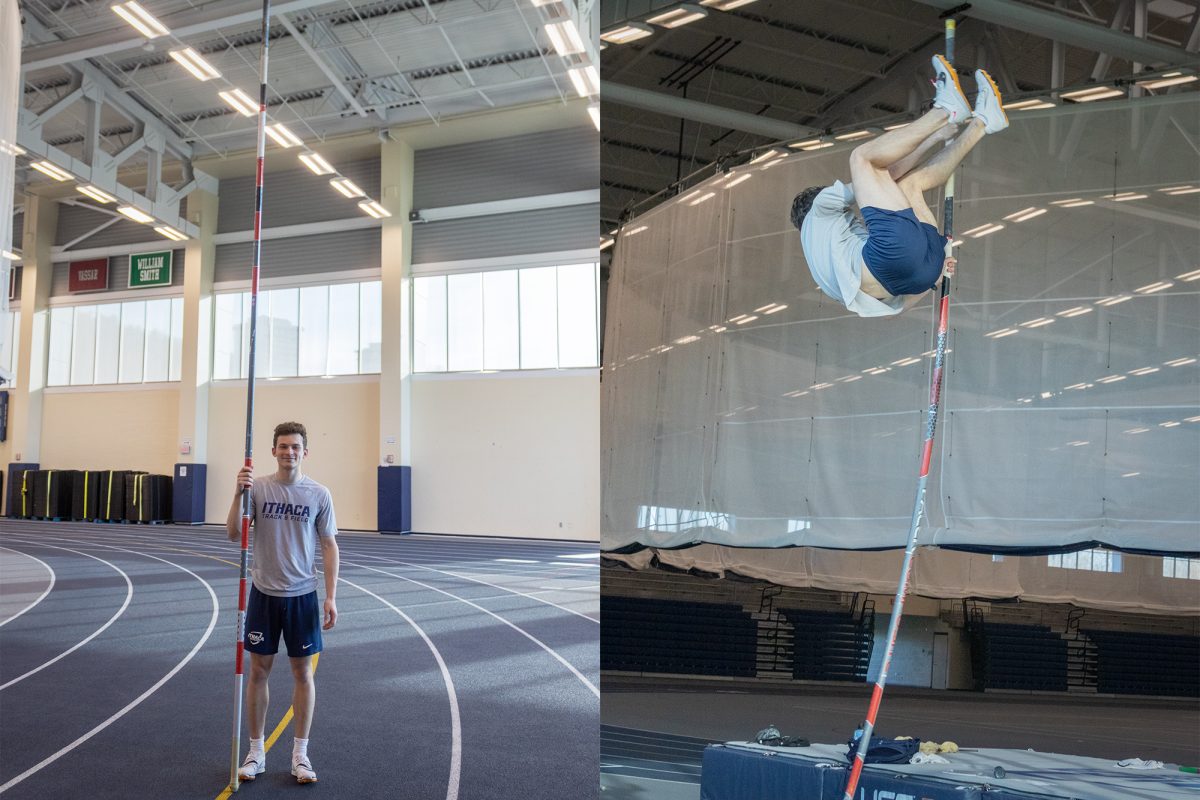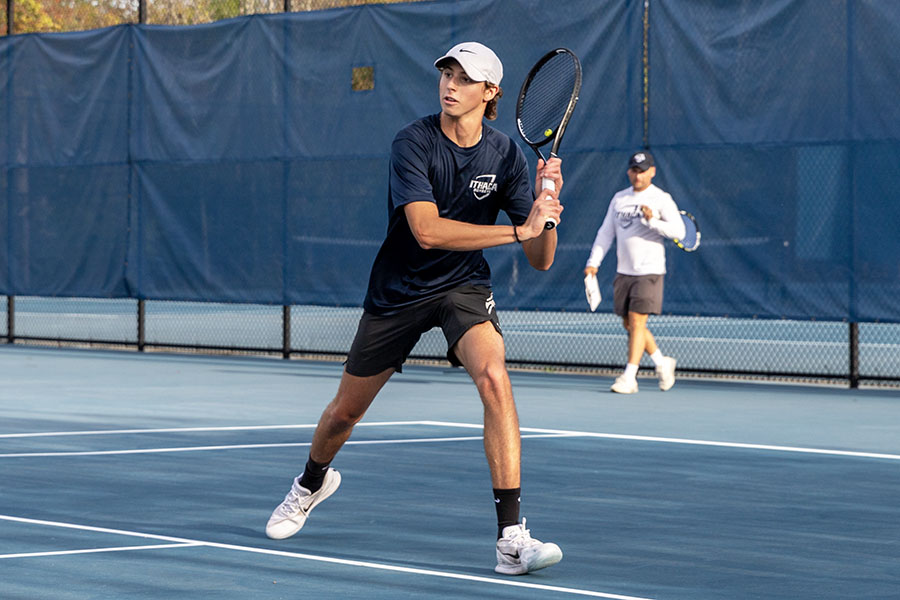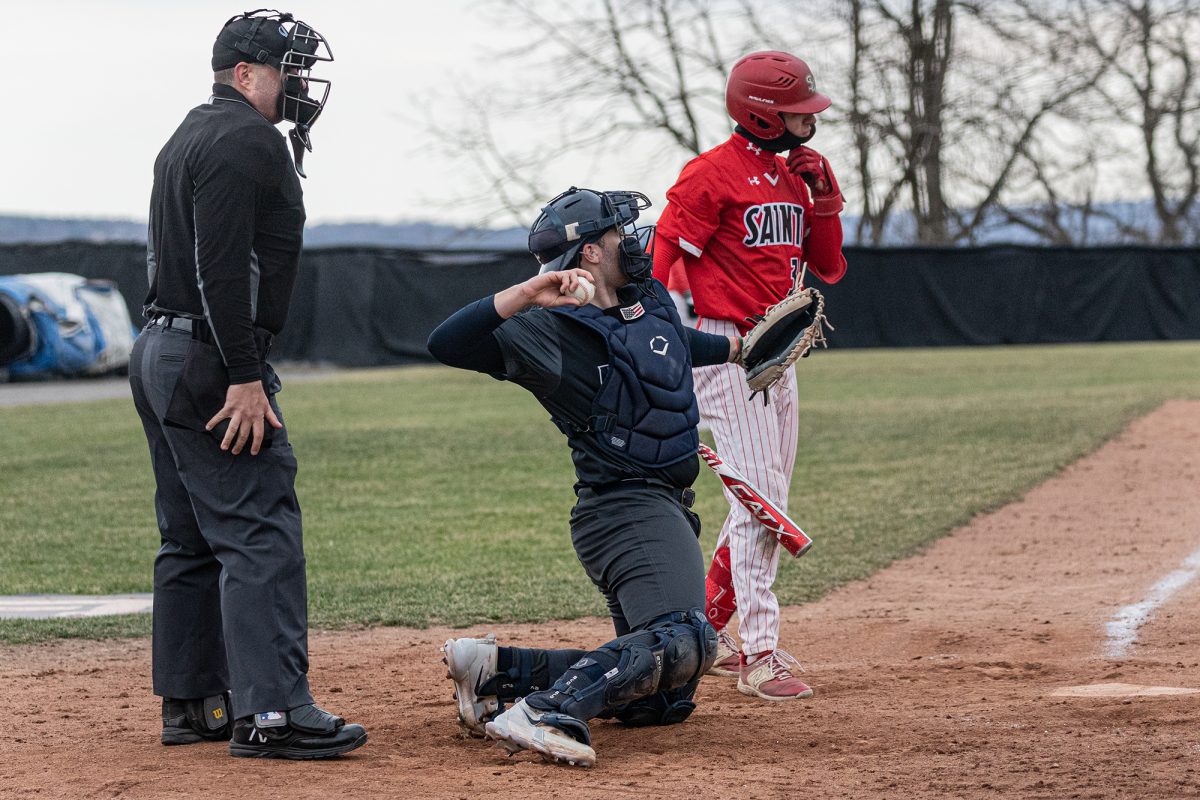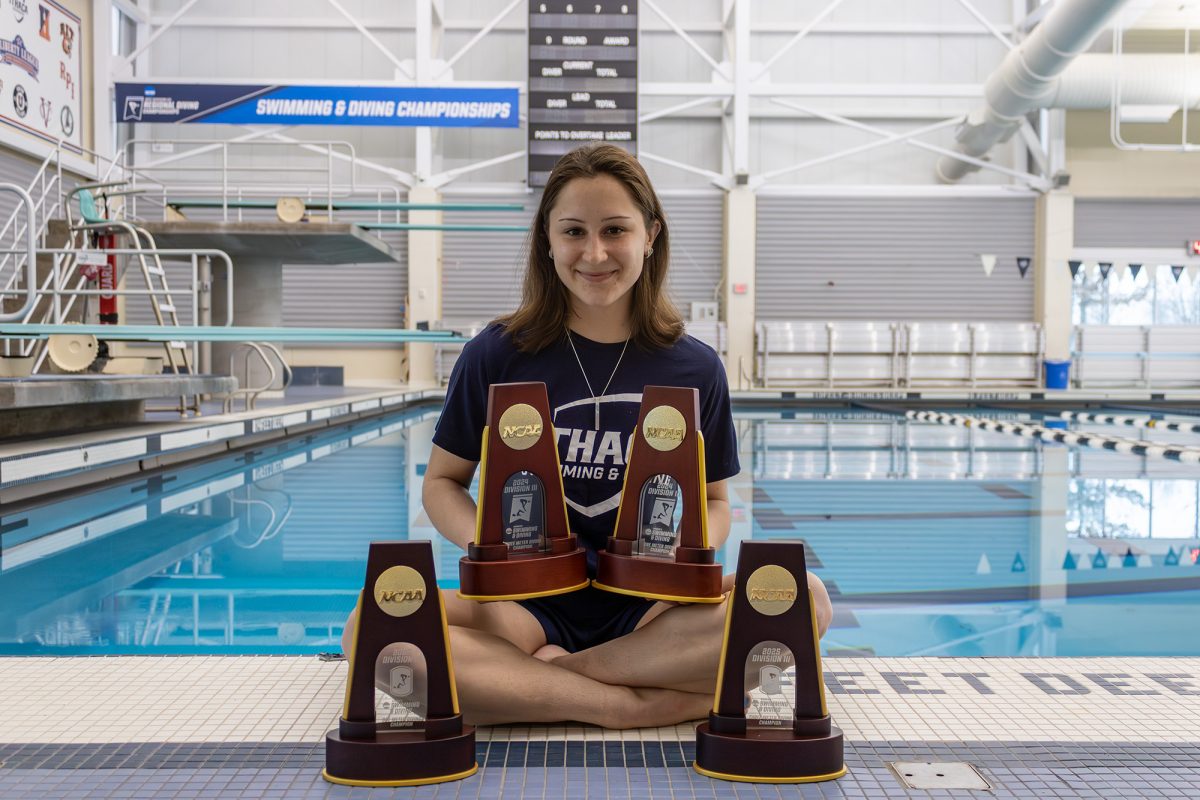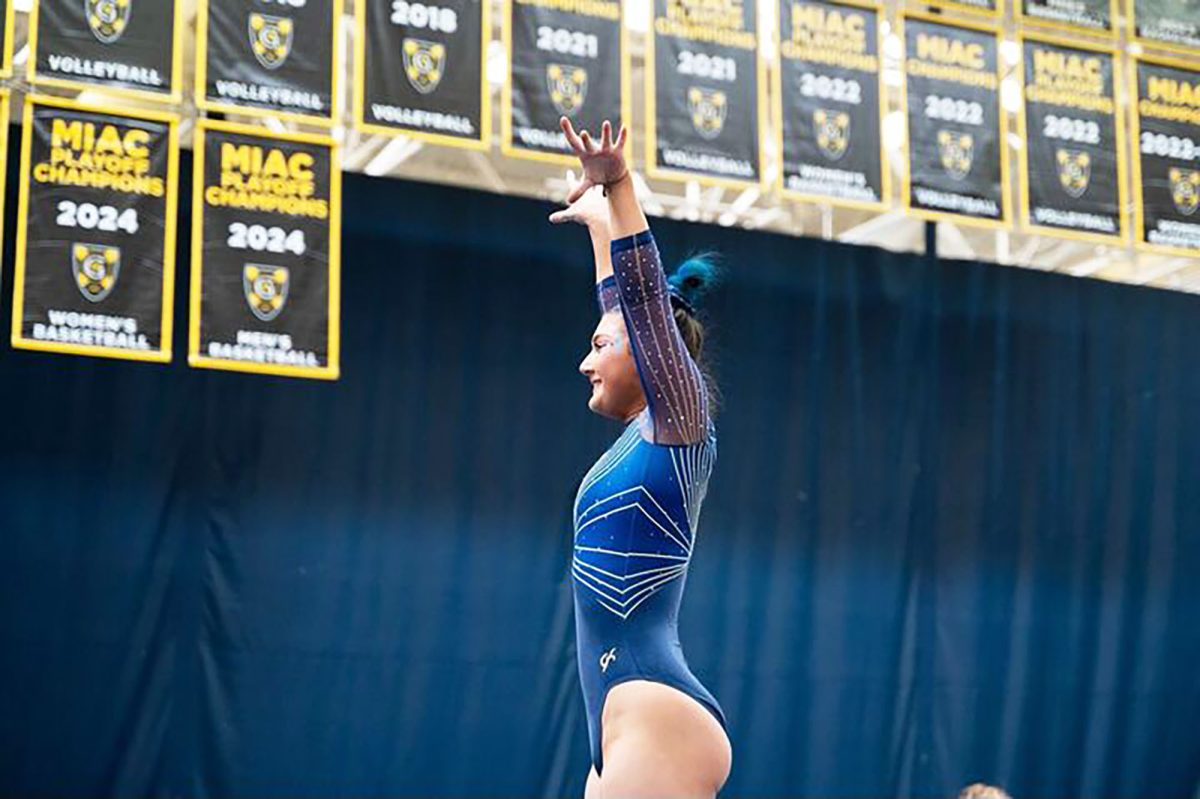Sophomore Benjamin Pesco has been a pole–vaulter in track and field since seventh grade. Even though he participated in track his freshman year at Ithaca College, he switched to the men’s diving team at the beginning of this year.
Pesco was recruited to pole vault for the college’s men’s track and field team but was only able to participate for the first part of his freshman year. He suffered a hamstring injury during high school that lingered into his college career. Pesco suffered a grade–I hamstring strain, which stretched the muscle fibers in his leg. Kentaro Hawana, his former athletic trainer, said Pesco’s injury is common, but also hard to treat.
“Pesco pulled his hamstring two to three times during the indoor season,” Hawana said. “A muscle strain is a very tricky injury because it is easier to get reinjured once you have it.”
He went to a sports medicine doctor on campus, who told him he had two choices — he could either keep competing or walk like a normal man when he’s in his 40s. Pesco chose the latter and stopped competing in track and field.
However, this setback did not stop him from playing sports altogether. Pesco took a diving class called Water Safety Instructor with the men’s diving coach, Chris Griffin. While taking the class, Griffin asked Pesco if he would like to be on the diving team. Pesco said yes to Griffin’s offer to walk onto the team because he wanted to try something that would be less aggravating for his hamstring.
Pesco said being a walk-on is much different from being a recruit.
“For diving, it was a much more intense process of actually having to show improvement,” Pesco said. “I am picking up the skills since I am coming in without a known set of skills and I had to actually show that I was committed to the process.”
Freshman diver Brian Coburn said Pesco is someone he looks up to because he admires his commitment to improvement.
“Every day, even though he is clearly new to the sport, he is probably the hardest-working on the team, and he has shown more improvement than any of us,” Coburn said. “When he finishes a workout, instead of being done, he asks our coach, ‘Is there more you want me to do?’ His work ethic is definitely something I look up to.”
Throughout his career, Pesco had to learn certain skills to become a successful pole–vaulter. He said he had to learn where his body is in relation to the pole, bar and the air around him.
Pesco said that already having the background of being in the air helped him but that the transition was difficult because he can no longer use the skills he has acquired over his years of pole–vaulting when he’s diving. In pole–vaulting, when an athlete jumps over the bar, their feet are above the rest of their body. The athlete has to arch their back to keep up with the height of their feet and get over the bar clearly. Pesco said that if he arched his back for diving like he would for pole–vaulting, it would throw off his whole dive.
Judges will critique a diver if their body is not straight when they enter the pool at the end of their dive. This has proved a challenge for Pesco, who said that learning a new kind of muscle memory has been difficult.
“I have to try to take something that I have spent six years learning muscle memory of and in the last four weeks say, ‘No, I can’t do this,’” Pesco said. “It is difficult to learn because some things feel natural when I try them, but others require a lot of thought process. I need to make sure that I am not doing the old habits again because the old habits do not lead to good dives — they lead to good vaults.”
Griffin said he is impressed with the progress Pesco has made so far this season.
“He is absolutely doing a very nice job with everything because he spent a large amount of his time working on pole–vaulting and learning the mechanics,” Griffin said. “It is really about relearning muscle skills and everything else. Initially, it was a major issue, but slowly we have been trying to make that transition, and he has been showing improvement.”
Pesco has already made an impact on the team. In the Nov. 3 meet against SUNY Cortland, Peso earned sixth place in the men’s 1-meter dive. During the next meet, he earned fifth in the men’s 1-meter dive to help propel the team to a victory against Le Moyne College.
While Pesco said he is happy with the switch to diving, he said he still misses competing in track and field.
“I would be lying if I said that I did not miss it,” Pesco said. “I definitely miss pole–vaulting, my old coach and my old teammates, but I don’t feel like I am in the wrong sport right now.”


